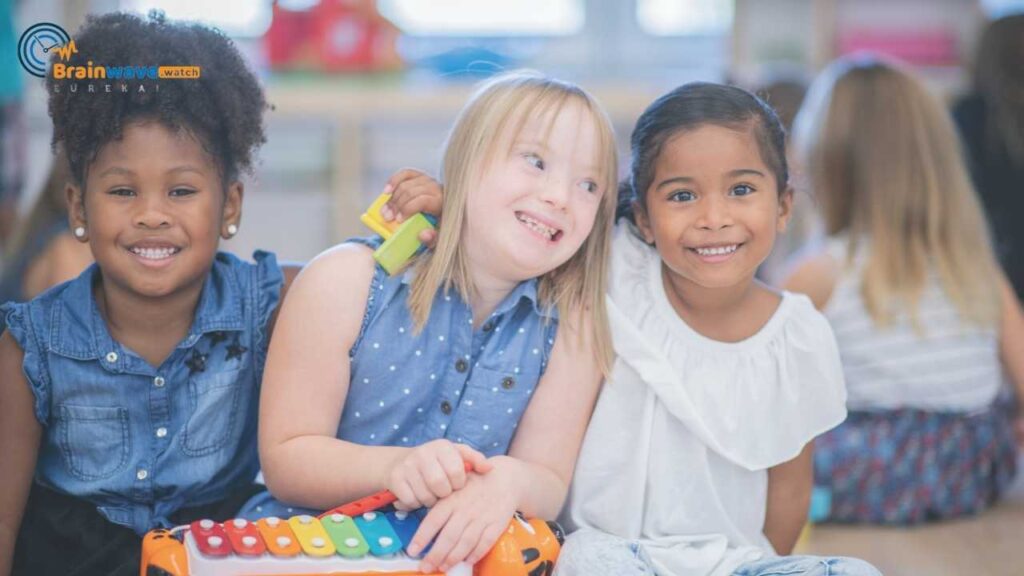Autistic play can be defined as play that is unique to children with autism. How children with autism play can differ significantly from the way neurotypical children play. Understanding the different types of play in autism and the benefits of play for autistic children is essential in creating an effective autistic play center.
Types of Play in Autism
Several types of play are common in children with autism. These include:
- Sensory Play: Sensory play involves activities that stimulate the senses. This can include playing with sand, water, or sensory toys.
- Parallel Play: Parallel play involves playing alongside others but not necessarily interacting with them. Children with autism may engage in parallel play because they struggle with social interaction.
- Repetitive Play: Repetitive play involves repeating the same action or activity over and over again. This can include spinning, flapping, or lining up objects.
Benefits of Play for Autistic Children
Play is essential for the development of all children, and this is especially true for children with autism. The benefits of play for autistic children include:
- Improving Social Skills: Play can help autistic children develop social skills such as turn-taking, sharing, and communication.
- Reducing Anxiety: Play can help reduce anxiety in autistic children by providing a safe and familiar environment.
- Developing Imagination: Play can help autistic children develop their imagination and creativity.
An autistic play center that focuses on providing a safe and stimulating environment for children with autism to play can help promote growth and development in these areas.
Designing an Autistic Play Center
Creating a play center that is welcoming and accommodating for children with autism requires careful consideration of various factors. Here are some key things to keep in mind when designing an autistic play center.
Sensory-Friendly Environments
Children with autism often have sensory sensitivities that can make traditional play spaces challenging for them. Therefore, it is essential to create a sensory-friendly environment in the play center. This could include providing a quiet space for children to retreat to if they become overwhelmed, using calming colors on the walls, and incorporating sensory-friendly lighting. The play center could also have a designated sensory room with sensory equipment such as swings, weighted blankets, and tactile toys.
Safety Considerations
Safety is a top priority when designing an autistic play center. It is essential to ensure that the play equipment is safe and appropriate for children with autism. The play center should also have a clear and visible emergency plan, and the staff should be trained in first aid and CPR. Additionally, the play center should be designed in a way that minimizes the risk of injury, such as by using soft surfaces and padding.
Inclusive Play Equipment
Inclusive play equipment is crucial for creating a play center that is welcoming to all children, including those with autism. The play equipment should be designed to promote inclusion and encourage social interaction between children. This could include providing equipment that is accessible to children with mobility impairments, such as wheelchair ramps and transfer platforms. It is also important to provide a variety of play equipment that caters to different interests and abilities.
By keeping these factors in mind, it is possible to create a play center that is both safe and welcoming for children with autism.
Programs and Activities
The Play-Place Autism & Special Needs Center offers a variety of programs and activities designed to meet the unique needs of children with autism and other special needs. The center’s mission is to provide a fun, safe, and inclusive environment where children can learn, play, and grow.
Structured Play Sessions
The center offers structured play sessions led by trained professionals who specialize in working with children with autism. These sessions are designed to encourage social interaction, improve communication skills, and promote sensory integration. During these sessions, children engage in a variety of activities, including arts and crafts, music, and games.
Skill-Building Activities
The center also offers skill-building activities that are designed to help children with autism develop important life skills. These activities include cooking classes, gardening, and fitness programs. Through these activities, children learn how to follow instructions, work as a team, and develop their fine and gross motor skills.
Social Interaction Opportunities
One of the primary goals of the Play-Place Autism & Special Needs Center is to provide children with autism with opportunities to interact with their peers in a safe and supportive environment. The center offers a variety of social interaction opportunities, including playgroups, social skills classes, and sensory-friendly events. These opportunities allow children to develop friendships and learn important social skills, such as turn-taking and sharing.
Staff Training and Support
Staff training and support is a crucial aspect of any Autistic Play Center. The staff members need to be equipped with the knowledge and skills required to provide the best possible care to the children. Here are some of the areas that staff training and support should cover:
Autism Spectrum Disorder
Staff members must have a good understanding of Autism Spectrum Disorder (ASD). This includes knowledge of the characteristics of ASD, such as difficulties with social interaction, communication, and repetitive behaviors. Staff members should also be aware of the sensory sensitivities that many children with ASD experience.
To ensure that staff members have a good understanding of ASD, training sessions should be conducted by professionals with experience in working with children with ASD. These sessions should cover topics such as the causes of ASD, the early signs of ASD, and the different types of interventions that can be used to support children with ASD.
Communication Strategies
Communication can be a challenge for children with ASD, and staff members need to be equipped with the skills required to communicate effectively with them. This includes using visual aids such as pictures and symbols, using clear and simple language, and giving children enough time to process information.
Training sessions should cover different communication strategies that can be used to support children with ASD. These strategies should be tailored to the individual needs of each child, and staff members should be encouraged to use a variety of strategies to find what works best for each child.
Community Engagement and Awareness
The autistic play center recognizes the importance of community engagement and awareness in promoting inclusion and support for individuals with autism. By educating the public and providing resources for families and caregivers, the center aims to create a more accepting and understanding community.
Family and Caregiver Workshops
The center offers workshops for families and caregivers to learn about autism and how to best support their loved ones. These workshops cover a range of topics, including communication strategies, behavior management, and sensory processing. Participants also have the opportunity to connect with other families and share their experiences.
Outreach Programs
In addition to workshops, the center also offers outreach programs to schools and community organizations. These programs aim to educate others about autism and promote inclusion. The center provides resources and support for organizations looking to create more inclusive environments for individuals with autism.
By promoting community engagement and awareness, the autistic play center hopes to create a more supportive and inclusive community for individuals with autism and their families.







